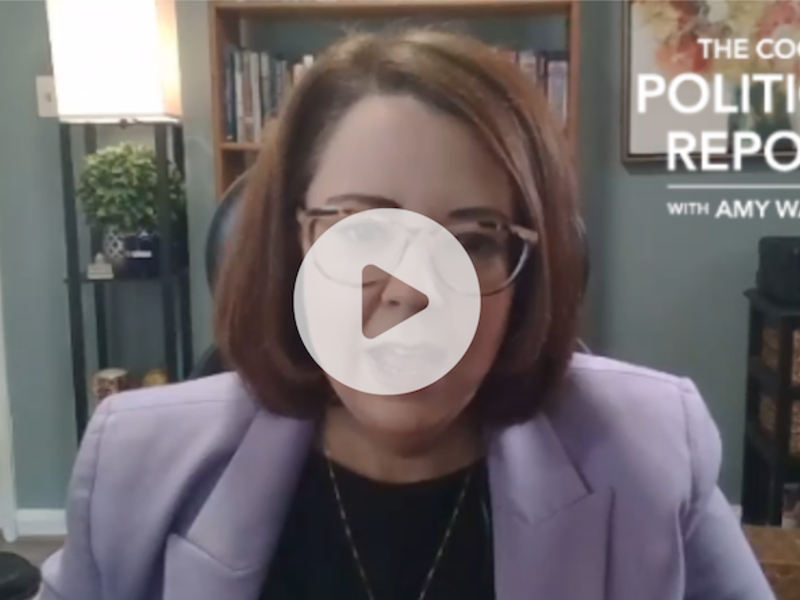
According to a recent CNN poll, 30 percent of Americans—including 70 percent of Republicans—do not believe that Joe Biden legitimately won the 2020 election. The poll question didn’t measure whether Biden should have won, or if the country will or won’t be well served by his presidency, but whether or not he actually did prevail over Donald Trump. Almost 7-in-10 of those who do not believe he won agreed that there is “solid evidence” to the contrary. Some of these people point to “sworn affidavits” about election irregularities.
But who swore, what did they swear to, and what happened when law enforcement officials, prosecutors, and judges looked at the charges? Dozens of state and federal judges, including at least nine Trump-appointed judges, found little or no merit to them. Also keep in mind that over half of all currently serving federal judges were appointed by Republican presidents.
The conservative Hoover Institution in February released a statistical analysis of some of the claims, finding them wanting and underwhelming.
Zooming out even further, the conservative Heritage Foundation recently released a database of election-fraud cases covering 40 years. It found 1,322 “proven cases of voter fraud,” 1,139 criminal convictions, 48 civil penalties, 21 “judicial findings,” 17 “official findings,” and 97 cases remanded to diversion programs. While the introduction to the release announcing the database modestly calls it a “sampling,” a close look reveals it to be a pretty comprehensive cataloging of convictions.
To put this in perspective, over that 40-year period since 1980, just over 2 billion votes were cast in federal general elections. This does not include primary, runoff, special, bond, municipal, or county elections, or, for that matter, the statewide off-year elections in Kentucky, Louisiana, Mississippi, New Jersey, or Virginia. This suggests an infinitesimal level of vote fraud taking place.
George W. Bush’s Justice Department reached a similar conclusion. In 2001, newly confirmed Attorney General John Ashcroft challenged the 93 U.S. attorneys to look into voting fraud, an investigation that continued for the remainder of Bush’s first term and into 2005 under Ashcroft’s successor, Alberto Gonzales. In 2006, Justice reported that during the period, “[o]ver 300 investigations of possible election crime have been opened, and over 125 election crime matters have been closed after investigation, 119 individuals have been charged with ballot fraud offenses, 86 individuals have been convicted of these crimes, 8 individuals have been charged with campaign financing fraud [and] 42 individuals have been convicted of these offenses.” These are tiny numbers in a nation of 300 million people.
As The New York Times reported at the time, “Most of those charged have been Democrats, voting records show. Many of those charged by the Justice Department appear to have mistakenly filled out registration forms or misunderstood eligibility rules.” The Times went on to report that an assistant U.S. attorney in Miami said that “many cases there involved what were apparently mistakes by immigrants, not fraud.”
The Times noted that "a handful of convictions involved people who voted twice. More than 30 were linked to small vote-buying schemes in which candidates generally in sheriff’s or judge’s races paid voters for their support.”
As the University of California, Irvine's Richard Hasen, probably the foremost academic expert in election law, put it: ”What we see is isolated, small-scale activities that often have not shown any kind of criminal intent.”
Despite these findings, I have no doubt that those convinced of widespread voting fraud are sincere in their concerns. The reality is that there is only one state in which there is a pronounced vote-fraud problem—the State of Denial. One problem is this country’s political segregation. Many members of both parties and ends of the political spectrum are so siloed, they have created partisan safe spaces and ideological comfort zones. They cannot imagine that more people might actually vote or even feel differently than they do.
There is an old chestnut that the late, longtime New Yorker film critic Pauline Kael expressed surprise over the election of Richard Nixon in 1972, since nobody she knew voted for him. Vanity Fair’s James Wolcott checked out the quote. What Kael actually said was, “I live in a rather special world. I only know one person who voted for Nixon. Where they are I don’t know. They’re outside my ken. But sometimes when I’m in a theater I can feel them.”
But back to wishful thinking and distorted perspectives. For many people, there are only two possible outcomes to any kind of contest: “I won,” or “I was cheated.” To them, a loss is not only unacceptable but inconceivable.
This article was originally published for the National Journal on May 11, 2021.










Subscribe Today
Our subscribers have first access to individual race pages for each House, Senate and Governors race, which will include race ratings (each race is rated on a seven-point scale) and a narrative analysis pertaining to that race.